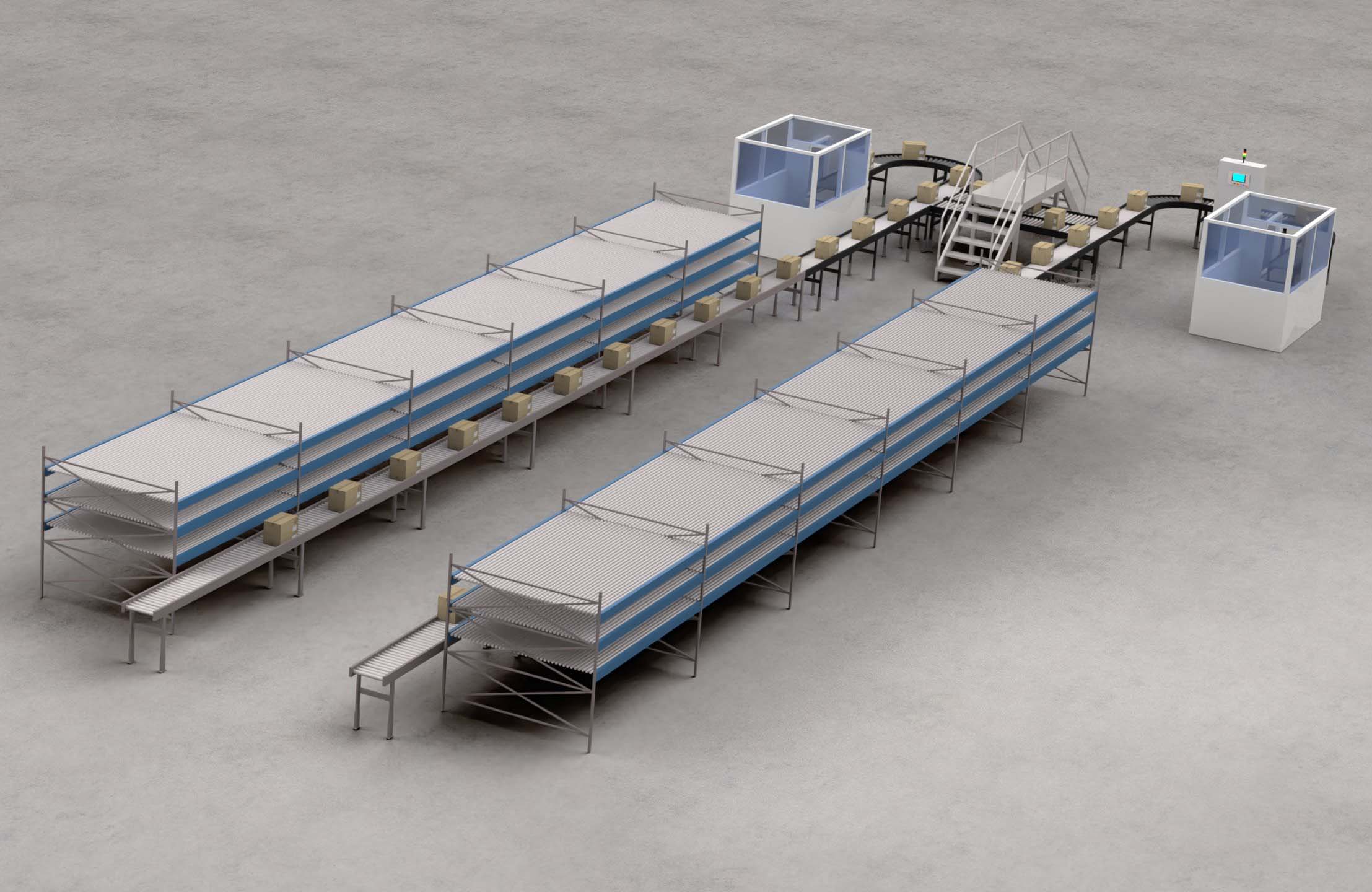With many different options available on moving products between floors we have put together this guide to help understand the different technologies.
Powered Spiral elevators and lowerators
Spirals have a compact footprint so take up little floor space and ensure products are transported smoothly and in a continuous manner at a controlled rate. As they have a relatively shallow angle of incline, they easily interface with conveyors at both the infeed and outfeed levels for smooth transition of products on and off.
As products feed continuously on and off a spiral, the throughput volumes are high and due to the small amount of moving parts are quiet running and require little maintenance.
Spirals are very flexible and are able to reverse their direction at the press of a button and if supplied in sections, can feed a number of floor levels which is necessary for replenishment/order picking.
<image src=”https://conveyorsystemsltd.co.uk/wp-content/uploads/2023/01/CSL-Spiral-Elevators.webp” title_text=”CSL Spiral Elevators” />
<image src=”https://conveyorsystemsltd.co.uk/wp-content/uploads/2023/01/CSL-Vertical-Elevators.webp” title_text=”CSL Vertical Elevators”/>
Vertical lifts are not dissimilar to goods lifts in as much as they handle a single load at a time instead of a continuous feed on a spiral which means they are used on lower volumes but have the advantage of being able to handle products which need to be kept vertical, (instead of on an incline), can handle heavier weights and larger products such as pallets.
They are very flexible and are able to reverse their direction and can feed a number of floor levels which is necessary for replenishment/order picking. Vertical lifts have a compact footprint so take up little floor space and due to the small amount of moving parts are quiet running and require little maintenance.
Inclined belt conveyors are probably the simplest and cheapest form of raising/lowering products to/from upper floors or merely to elevate products above head/truck height to keep working areas clear for movement.
When lowerating from a higher level, a powered decline belt will give a controlled descent as opposed to a gravity fed chute which can cause product collision damage and create safety issues if heavier weights are fed down it.
They handle a continuous feed which means they are used on higher volumes but have the advantage of being able to handle a wide range of products which normally cannot run on a roller-based conveyor system.
They are very flexible, are able to reverse their direction and can feed a number of floor levels which is necessary for replenishment/order picking. Inclined belt conveyors take up a larger footprint than a vertical elevator.
Speeds of the belts can vary widely from indexing for batch feeding up to continuous high speed and due to the small amount of moving parts are quiet running and require little maintenance.
Inclined belts come in a wide range of lengths and widths with a selection of belting from smooth wipe down to high grip to suit the products being handled.














